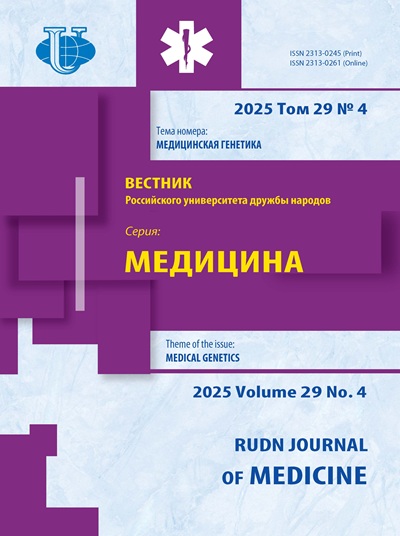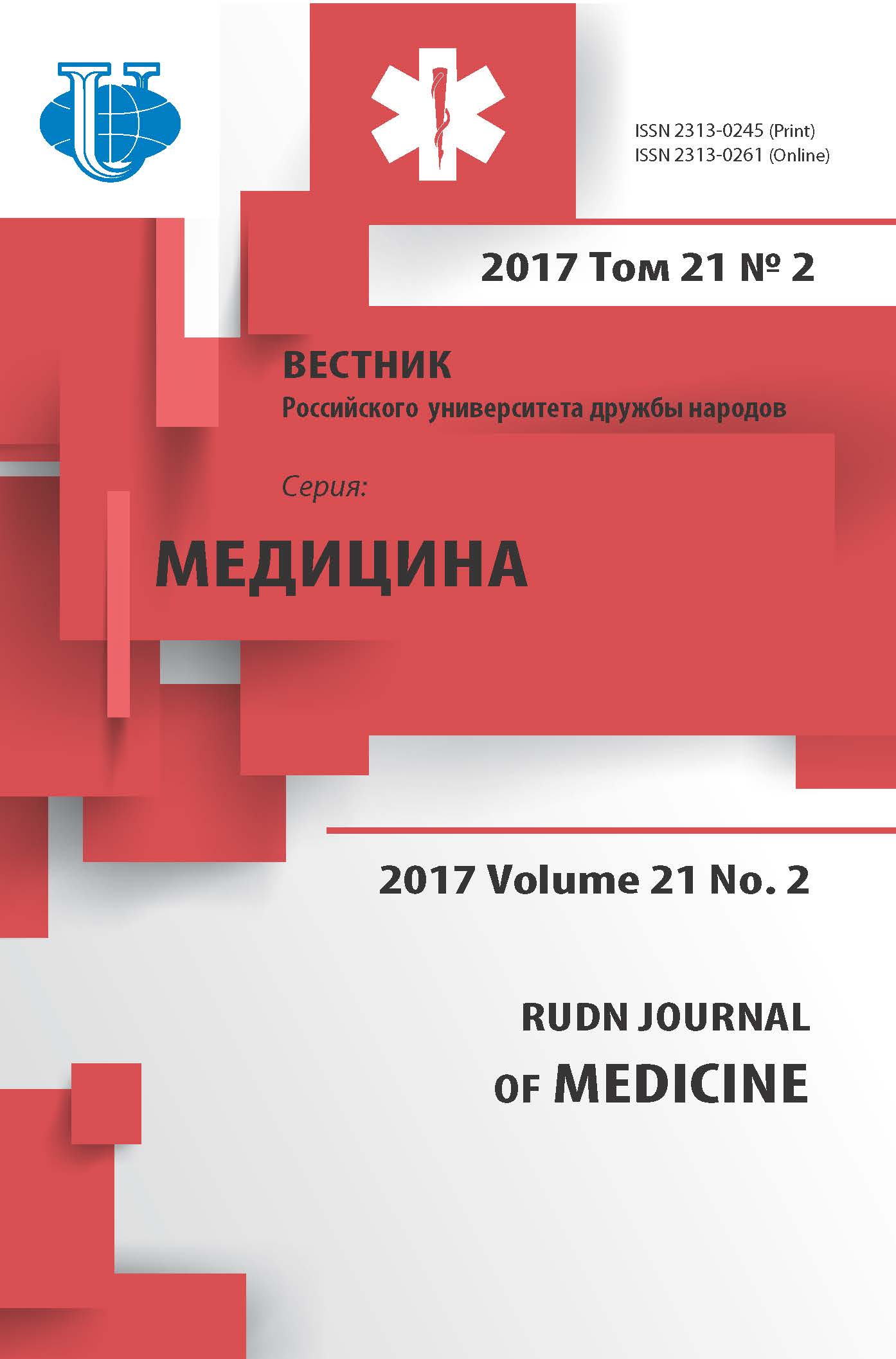TRANSRADIAL ACCESS TO TREATMENT OF PATIENTS WITH ACS: STILL TRAINING OR ALREADY ROUTINE PRACTICE?
- Authors: Majskov VV1, Meraj IA1, Mil'to AS1, Sharapova OV1, Kobalava Z.D2, Moiseev VS2
-
Affiliations:
- City Clinical Hospital №64, Department of Health of Moscow
- RUDN University, Moscow
- Issue: Vol 21, No 2 (2017)
- Pages: 281-288
- Section: Articles
- URL: https://journals.rudn.ru/medicine/article/view/16648
- DOI: https://doi.org/10.22363/2313-0245-2017-21-2-281-288
- ID: 16648
Cite item
Full Text
Abstract
The article is devoted to the study of a one-center experience of routine application of transradial access (TRD) by default in the treatment of patients with ACS in a short-term clinic, which has neither a vascular or cardiovascular surgery department. The experience of treatment of 3436 patients with acute coronary syndrome was analyzed, of which 72.64% were patients with acute myocardial infarc-tion. The use of TRD was considered successful in the case of completion of the procedure of stenting through the arm without the need for conversion of arterial access to the thigh. By default, right transradial access was used, except for cases of known anamnesis of mammarocoronary shunting. Time for puncture of the radial artery, installation of the introducer and catheterization of the arch of the aorta was 2.8 - 1.1 min. The average duration of fluoroscopy was 13.36 ± 8.86 minutes. The immediate success of the intervention, performed by transradial access, was 98%, of which the need for conversion to contralateral access was in 6.5% of patients. In total, two patients developed access point hematomas, which required the transfusion of blood components, managed to stop bleeding conservatively, in no case did vascular surgeons need help.
About the authors
V V Majskov
City Clinical Hospital №64, Department of Health of Moscow
Author for correspondence.
Email: maiskov-angio@yandex.ru
к.м.н., заведующий отделением РХМДиЛ ГБУЗ «ГКБ № 64 ДЗМ»
ул. Вавилова, д. 61, Москва, РоссияI A Meraj
City Clinical Hospital №64, Department of Health of Moscow
Email: konovalov_oe@rudn.university
ул. Вавилова, д. 61, Москва, Россия
A S Mil'to
City Clinical Hospital №64, Department of Health of Moscow
Email: konovalov_oe@rudn.university
ул. Вавилова, д. 61, Москва, Россия
O V Sharapova
City Clinical Hospital №64, Department of Health of Moscow
Email: konovalov_oe@rudn.university
ул. Вавилова, д. 61, Москва, Россия
Zh D Kobalava
RUDN University, Moscow
Email: konovalov_oe@rudn.university
V S Moiseev
RUDN University, Moscow
Email: konovalov_oe@rudn.university
References
- Babunashvili A.M. & Kartashov D.S. Guidelines for the use of radiation access in interventional angiocardiology. Moskva: ASV. 2017. 173 s.
- Barbarash L.S. & Ganjukov V.I. Organization and tactics of coronary intervention in myocardial infarction with ST segment elevation. Novosibirsk: Areal. 230s.
- Ganjukov V.I., Zyrjanov I.P., Osiev A.G., Protopopov A.V. & Fedorchenko A.N. Particular Issues of Coronary Angioplasty. Novosibirsk: Agros. 2008. 336 s.
- Hubutija M.Sh., Gazarjan G.A. & Zaharov I.V. Reperfusion therapy in the acute period of myo-cardial infarction. Moskva: GJeOTAR-Media. 2010. 165 s.
- Campeau L. Percutaneous radial artery approach for coronary angiography. Cathet Cardiovasc Diagn. 1989. V. 16. Р. 3—7.
- Kiemeneij F. & Laarman G.J. Percutaneous transradial artery approach for coronary stent implan-tation. Cathet Cardiovasc Diagn. 1993. V. 2. Р. 173—178.
- Kiemeneij F., Laarman G.J., et al. Transradial artery coronary angioplasty. Am H J. 1995. V. 129. P. 1—7.
- Kiemeneij F., Laarman G.J., et al. A randomized comparison of percutaneous transluminal coro-nary angioplasty by the radial, brachial and femoral approaches: the ACCESS study. J Am Coll of Cardiol. 1997. V. 29. Р. 1269—1275.
- Jolly S.S., Yusuf S., et al. Radial vs. femoral access for coronary angiography and intervention in patients with acute coronary syndromes (RIVAL): a randomized, parallel group, multicentre trial. Lancet. 2011. V. 377. P. 1409—1420.
- Pancholy S., Patel T., Sanghvi K. & Thomas M. Comparison of door-to-balloon times for primary PCI using transradial versus transfemoral approach. Catheter Cardiovasc Interv. 2010. V. 75. P. 991—995.
Supplementary files















